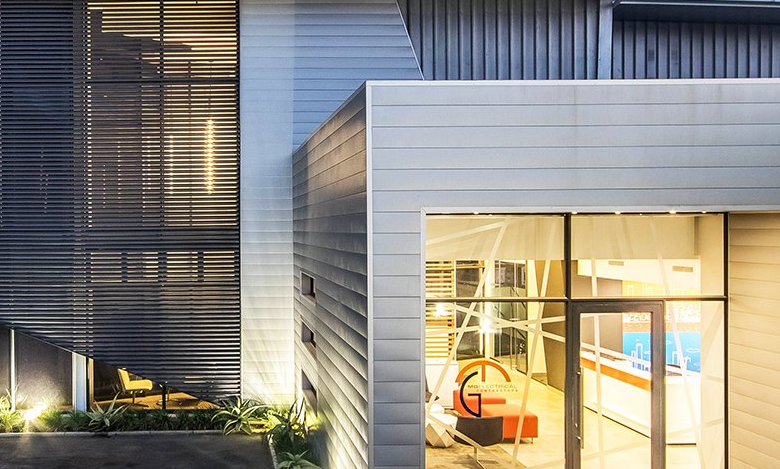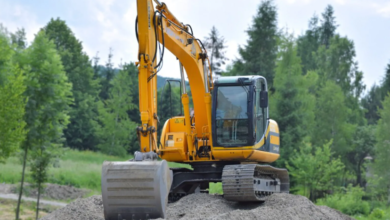Aluminum Cladding Supplier Guide for Modern Construction Projects

An aluminum cladding supplier provides essential materials and expertise for architects, builders, and property owners looking to enhance building exteriors with durable, lightweight, and weather-resistant panels. These suppliers offer a range of aluminum composite panels and cladding systems tailored to various residential and commercial applications, ensuring both aesthetic appeal and structural performance.
The role of an aluminum cladding supplier is to deliver high-quality, customizable facade solutions that meet industry standards for durability and sustainability. Many suppliers also support projects through design consultation, fabrication, and installation services, helping clients achieve their architectural vision efficiently.
By choosing a reputable aluminum cladding supplier, clients gain access to innovative products that combine style with long-term resilience. This makes aluminum cladding a popular choice for contemporary building designs aiming for a modern look without compromising on practicality.
Choosing an Aluminum Cladding Supplier
Selecting the right aluminum cladding supplier requires attention to several core factors. These include assessing the supplier’s product standards, reliability in delivery, and their standing among past clients. Each aspect ensures the materials meet project demands and logistics run smoothly.
Key Criteria for Supplier Selection
When choosing a supplier, experience in the aluminum cladding industry is crucial. Suppliers with a proven track record tend to offer consistent product quality and better technical support.
The range of products available also matters, especially if the project demands specific finishes or systems such as composite panels or decorative aluminum facades. Suppliers providing flexible options can better meet unique architectural requirements.
Additionally, the supplier’s ability to offer after-sales service and technical guidance can impact project success. It is beneficial to work with companies that support problem-solving and product customization.
Product Quality and Compliance
High-quality aluminum cladding must comply with industry standards and certifications. Suppliers should provide documentation proving compliance with local building codes, fire resistance, and environmental regulations.
Material durability is essential, as cladding panels must withstand weather and wear over time. This includes resistance to corrosion and UV degradation. It’s important suppliers source aluminum that is tested and accredited for such properties.
Attention to finishing processes like powder coating or anodizing affects both aesthetics and longevity. These details influence energy efficiency and maintenance needs, key factors for many construction projects.
Delivery and Lead Times
Reliable delivery schedules are critical for maintaining construction timelines. A supplier’s ability to provide accurate lead times and manage logistics reduces risks of delays.
It is preferable to select suppliers with local or regional distribution centers to minimize shipping time and costs. Transparency about inventory status and potential bottlenecks allows better planning.
Additionally, some suppliers offer just-in-time delivery services, which can align shipments precisely with project phases, reducing storage needs on-site. Clear communication lines with the supplier are essential for tracking and adjusting schedules as needed.
See also: It Managed Service Provider Near Me: Reliable Solutions for Your Business Needs
Reputation and Customer Reviews
Reputation provides insight into the supplier’s reliability and service quality. Checking verified customer reviews offers firsthand experience with product performance and support responsiveness.
Industry certifications and awards also signal a supplier’s credibility and adherence to quality standards. Suppliers recognized by professional bodies often maintain stricter quality controls and ethical practices.
Engaging with references or clients who have conducted similar projects helps gauge whether the supplier can meet specific technical or volume demands. Word-of-mouth from architects, builders, and contractors can be a dependable source of advice.
Types of Aluminum Cladding Offered
Aluminum cladding suppliers provide a range of panel types, finishes, and customization options to fit diverse architectural needs. They also emphasize sustainability with certifications and recyclable materials to meet current environmental standards.
Panel Varieties and Finishes
Suppliers typically offer aluminum cladding in various panel styles including flat sheets, cassettes, strips, shingles, and mesh configurations. Each type serves different design needs, from sleek facades to textured surfaces.
Finishes range from smooth powder coatings to anodized or painted options. Common colors include metallic silver, bronze, and custom shades. Textures like wood grain or brushed metal are often available, enhancing aesthetic flexibility.
The panels are lightweight yet robust, providing corrosion resistance and durability in extreme weather. Some panels include high-performance coatings to improve UV resistance and reduce maintenance requirements.
Customization Options
Aluminum cladding suppliers often allow customization in size, shape, and perforation patterns. This adaptability supports unique architectural designs or functional requirements such as improved ventilation or light diffusion.
They may offer tailored finishes to match specific color codes or branding guidelines. Custom coatings can include anti-graffiti or anti-fingerprint properties for high-traffic areas.
Additionally, suppliers provide integration options with insulation or rain screen systems. These enhance thermal performance and building envelope protection according to project demands.
Sustainability and Certifications
Many aluminum cladding suppliers focus on eco-friendly production methods. Aluminum is fully recyclable, reducing waste and energy consumption in manufacturing.
Certifications like LEED and ISO support sustainable building practices. These attest to responsible sourcing and reduced environmental impact during production and installation.
Suppliers also minimize VOC emissions and use less harmful chemicals in coatings. This commitment appeals to projects aiming for green building certifications and compliance with environmental regulations.





